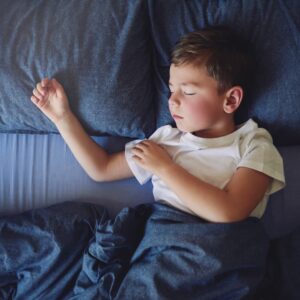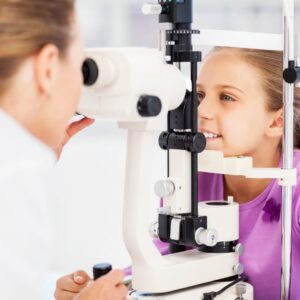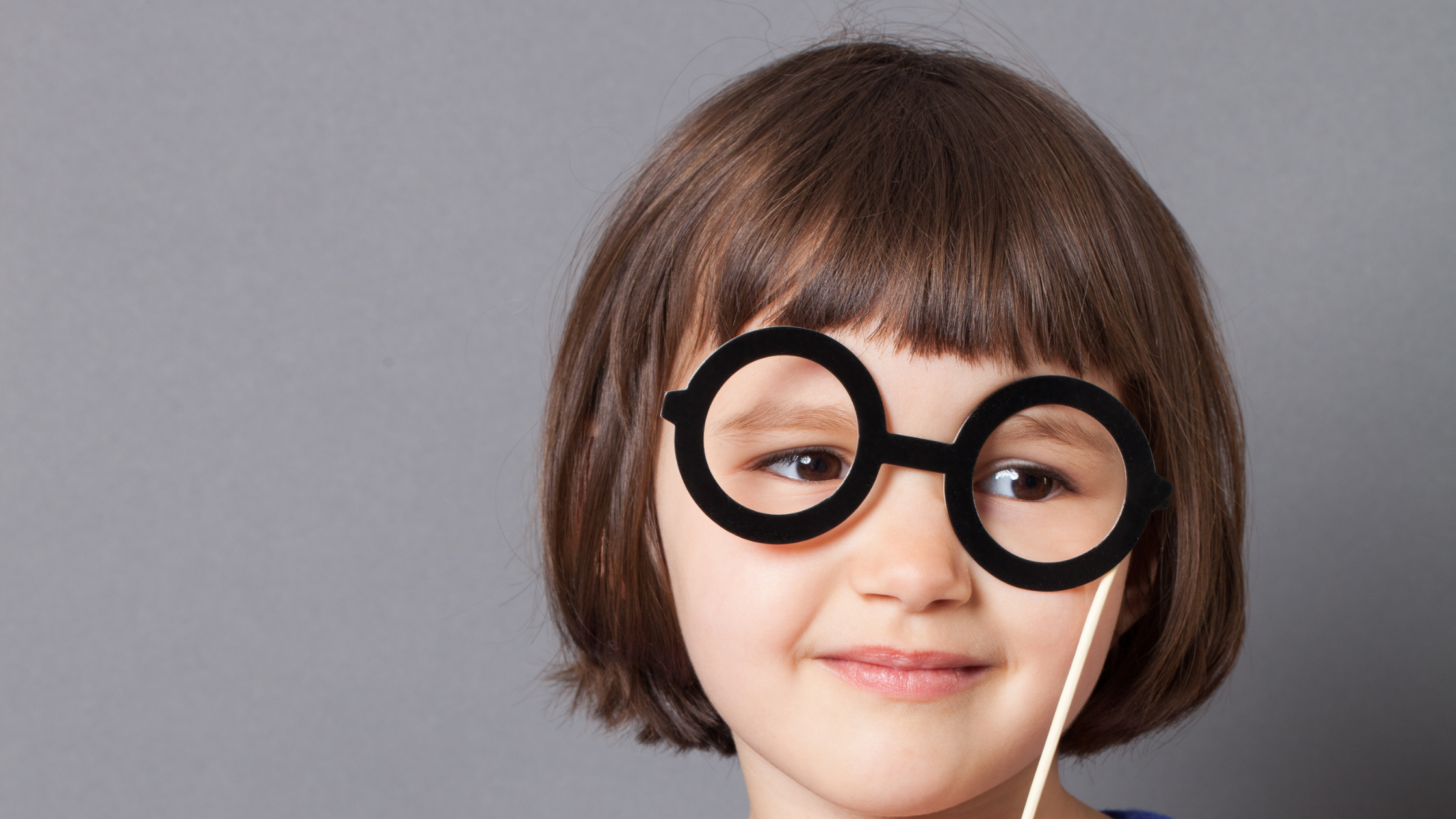Eyesight is one of the most important senses since the majority of information humans perceive is through vision. Routine eye care and regular eye examinations are the best ways to identify and prevent many of the paediatric eye problems. As kids may not be aware of how to protect their eyes from injuries and vision loss, you may teach them ways to prevent eye injuries and infections.
It would be best if you also screened your child for vision problems by visiting an optometrist and taking the necessary steps to protect and improve eyesight. Protecting your child’s eyesight begins in pregnancy. Prenatal smoking could damage unborn babies’ eyes, so you may start to care for your little ones’ eyes even before they are born. Ensure smoking cessation and good prenatal care to avoid eye problems before and at the time of birth.
There are various simple eye-care tips to improve your kids’ eyesight. These tips may also help prevent eye damage in children.
Maintaining a healthy diet.

A healthy diet is essential for a child’s vision, as well as other functions and growth. Always ensure you encourage them to consume healthy foods, including fresh vegetables, eggs, fish, meat, and fruits. Green leafy vegetables and yellow vegetables are good sources of vitamin A, an essential nutrient for ocular health. Also, it would be best if you encouraged your kid to eat fresh homemade foods rather than processed foods and junk foods. Follow a mixed diet to ensure they receive all vitamins and minerals. You may prepare tasty and healthy homemade snacks that appeal to your child.
Drinking lots of water.

An adequate amount of water is needed for eye health. It would help if you encouraged your child to drink a minimum of four full glasses of water daily. The adequate amount may change depending on the age of your child, activities, and climatic conditions. Water is required for the cleaning process of the eye.
Getting good sleep.

We don’t really pay attention, but our eyes also need rest. A good night’s sleep helps rejuvenate the body and relaxes the eyes. It would be best if you encouraged your kid to fall into a regular sleeping routine to promote ocular health. For kids, looking at the blackboard in school, and staring at books and notebooks throughout the school days, followed by playing video games in the evening can put a stress on their eyes.
Make sure they get enough sleep at night to allow their eyes to rest. Replace evening activities with ones that don’t need any focus of the eyes. These could be like taking a stroll in the park or playing games that depend more on other physical activities or simply lying down with eyes closed and listening to music.
Limit screen time.

Digital devices and screens in all shapes and sizes are nearly unavoidable in today’s date. Kids love playing video games, watching videos on mobile phones and playing games on a computer. This results in sitting in front of the computer for long hours or playing video games for extended durations; as a result, their eyes are constantly focusing at a specific point throughout the process. This can cause the eyesight to degrade, leading to vision problems at a very young age.
Screen time should be less than an hour for kids younger than five years. Older kids should have only an hour of screen time in a day. Minimal screen time can help ensure the child’s sleep and physical activity are not affected. Screen time should not be before bed, and you should avoid showing a video screen for a long time to kids younger than 18 months.
If your kid has to use the screen for a long time, teach them the 20-20-20 rule, which is to look 20 feet away for 20 seconds every 20 minutes. This healthy tip may ensure good eyesight.
Encourage outdoor activities.
Inspiring kids to play outdoors isn’t easy anymore. When they have such entertaining stuff like video games and the internet at home, why would they want to step out at all? The onset and progression of myopia (short-sightedness) in kids can be prevented by spending more time outdoors. It would be best if you encouraged children to play outside rather than indoor games or video games. Outdoor activities can be physically beneficial to children.
Discourage eye rubbing.

All forms of irritation in the eye is followed by the first reflexive action to rub the eye for relieve. However, this aggravates the problem. Any external body present in the eye can rub against the eyeball even more. Also, if the hands are unclean while rubbing the eye, this could transfer germs and bacteria and then result in an eye infection. If your kid already has conjunctivitis, the rubbing of the eye can worsen it.
Teach your kid to refrain from doing so and instead clean the hands and use water to clean the eye in the right way. It would help if you told your child to wash their eyes with cold water to relieve irritation instead of rubbing. As parents or custodian, you should teach children proper hand-hygiene techniques.
Use eye protection.
The sun can get quite bright at times, especially in summers and on peak afternoon times. If you are travelling or are on a vacation where you are spending a lot of time outside, your eyes must get protection just the way you would use sunscreen for your skin. Getting sunglasses for your child doesn’t have to be all about looking good but to provide a decent degree of UV protection from the sun rays.
Invest in sun protection accessories such as sunglasses with ultraviolet (UV) protection, or hats to shield your child from the sun’s damaging rays. For younger children, a hat or umbrella will be more ideal to avoid the risk of them poking their eyes with the sunglasses.
Enable safe toys.
Younger children have a higher risk of eye injuries from toys. You will need to choose safe toys for them, especially for toddlers. Avoid rough and sharp toys since they may cause accidental eye injuries. In situations whereby the toy or object is soft or blunt, the damage will be minimal, and it won’t hurt the eye permanently. However, a sharp object can be risky.
Note: Check the age specified by the manufacturer on the toy’s packaging. Using age-appropriate toys could help avoid eye injuries from toys.
Take them for regular eye check-ups.

Regular eye checkups may help determine eyesight problems in kids. Early diagnosis and interventions could help protect vision in most cases. Using eyeglasses and updating the power of the lens at the recommended intervals is also essential. Eye care for children involves several simple steps related to good personal hygiene, eye safety, and routine eye care. Proper handwashing could reduce the risk of many infectious diseases, including conjunctivitis.
You should teach them appropriate hand washing methods from an early age. Children should also be vaccinated against measles since this may increase the risk of vision loss and blindness. It is recommended to keep household cleaners and other chemicals away from kids’ reach to avoid accidental exposure since these products may cause eye damage.
Note: Routine eye care and regular eye checkups will help delay the onset or progression of many pediatric eye diseases in high-risk groups.
Don’t apply eye cosmetics on your child.
It is an old age myth that applying any form of kohl like Kajal or soorma will enhance your kid’s eyesight. But this is not a good practice as in today’s world we are not very sure of what quality of material goes into manufacturing these products. A lot of these substances are not considered safe and can affect your kid’s eyesight. Even high-quality eye pencils contain chemicals that are not safe. If these chemicals come in contact with the eyeball, it could affect the child’s eyesight.
Call us on 0161 665 3673 to book an appointment with us now! Follow us on Facebook and Instagram @chaddertonopticians for the latest eye health news.



[…] no ‘official’ age to start wearing contact lenses. However, it all depends on your child’s ability to use and look after their lenses. Also, children are quick learners and have proven to be […]